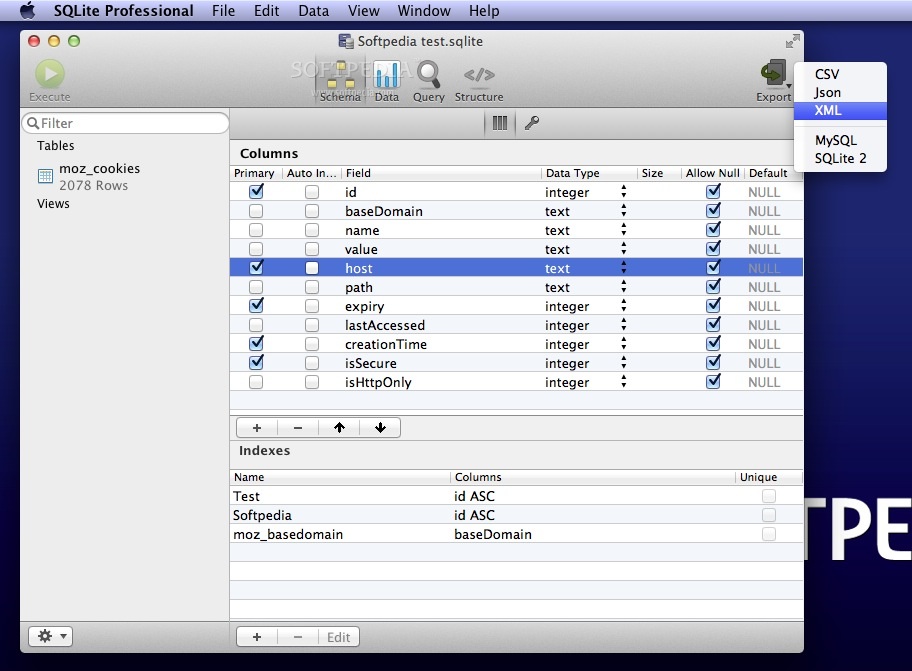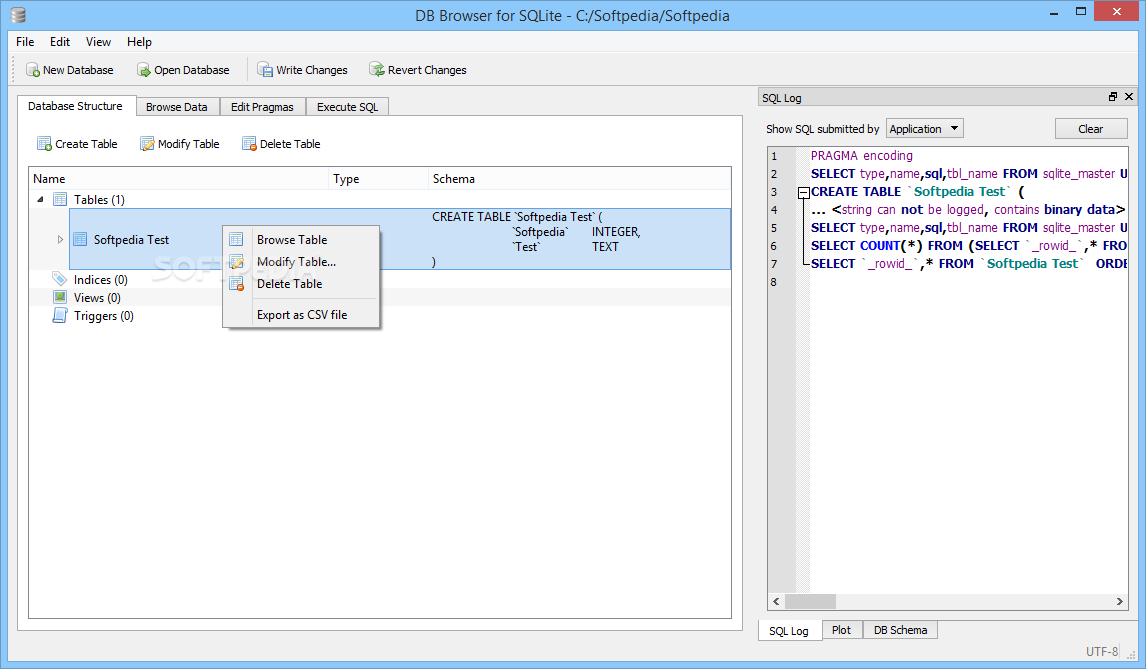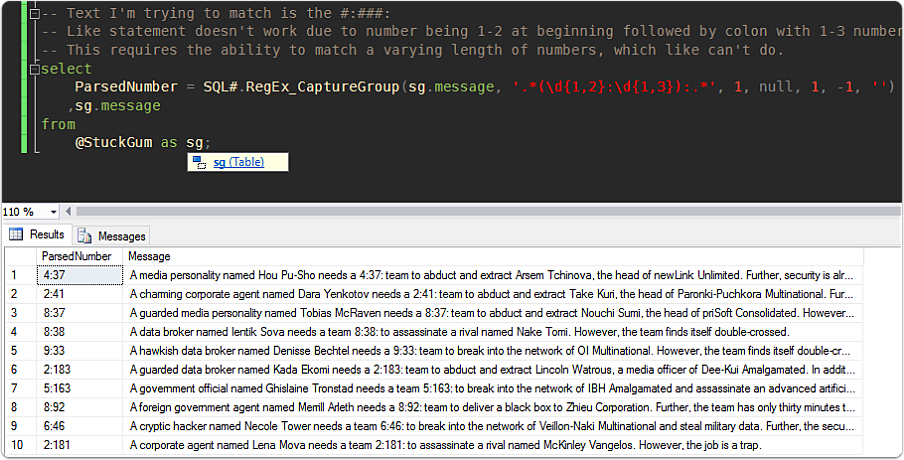


#Sqlite regex full#
There are three ways to use regex comparisons in SQL: A full reference to every function and module that sqlite-regex offers. Repetition of the previous item one or more times Start the match at the beginning of a stringĪny single character (using LIKE and SIMILAR TO)

Here is a quick cheat sheet for metacharacters to help define the pattern: Metacharacter It only supports one write operation at a time and stores all data on a single file, so it’s a better choice for single-user devices and small-scale test scenarios than for systems that need to support many concurrent writers or contain large amounts of data.įor applications that need to work at a larger scale, other database management systems such as PostgreSQL, MariaDB, or MySQL are more suitable.SELECT * FROM Email Addresses WHERE Email Address ~* Regex in PostgreSQL Metacharacters SQLite is an open source database engine intended to provide lightweight and efficient databases for small-scale applications. For example, SELECT my_function(name) FROM products. If you called create_function('my_function', 1), you would use my_function(arg) directly in your SQL expressions. SQLite maps expression REGEXP pattern to regexp(pattern, expression) for compatibility with other database management systems, so you can use either format in your SQL expressions.įor new functions that you create, you can call them just as you defined them. match ( matcher ) ? 1 : 0 end end end end Calling user-defined SQLite functions to_s, Regexp :: IGNORECASE ) # Return 1 if expression matches our regex, 0 otherwise fn. create_function ( 'regexp', 2 ) do | fn, pattern, expr | # Ignore case in our regex expressions matcher = Regexp. is_a? SQLite3 :: Database # Set up function to provide SQLite REGEXP support connection. class_eval do alias_method :orig_initialize, :initialize # Extend database initialization to add our own functions def initialize ( connection, logger = nil, pool = nil ) orig_initialize ( connection, logger, pool ) # Initializer for SQLite3 databases if connection. Desired API In essence, what we want to do is to enhance the String column type with additional comparators, which will then be usable as arguments for the Query.filter method.

# /config/initializers/database_functions.rb ActiveRecord :: ConnectionAdapters :: AbstractAdapter. Regular expressions are not implemented there directly, but thanks to sqlite3‘s custom function ability, it’ll be easy enough to provide the necessary support in Python.


 0 kommentar(er)
0 kommentar(er)
